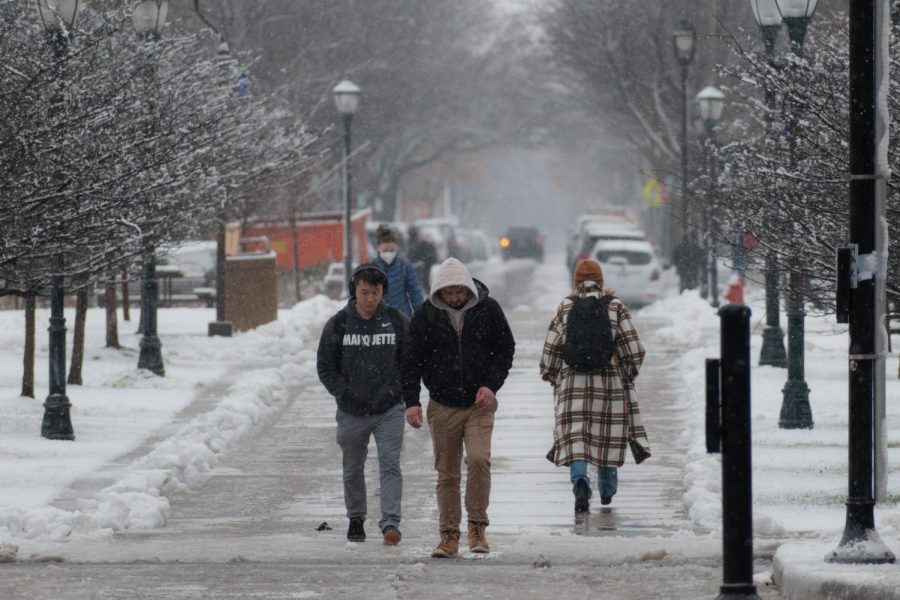Whether it be from a fellow student, an alum or an older cousin, most college students have been given a very particular warning. To survive college, you have to sacrifice your studies, your social life or your sleep.
Most college students see this decision as easy. Memories are forever and classes are the whole reason they are attending university. Sleep is momentary, and it’s something you can always catch up on later. However, routinely sacrificing sleep can be a much more hazardous habit than many assume.
After staying awake for more than 24 hours, the average person usually starts experiencing fatigue, irritability, brain fog, impaired vision and tremors. Twelve hours later, metabolism slows, blood pressure rises and most begin suffering from speech impairment or fluctuations in body temperature. New symptoms begin to accumulate with every couple of hours they stay awake and will persist until they are able to properly rest.
Staying up for any extended amount of time will create a sleep debt. A sleep debt is when you are unable to sleep as much as your body needs. Although it is not exactly known why this debt activates, it is evident that it is triggered by patterns of insufficient sleep. Usually, a person feels tired and unfocused throughout the entire day when suffering from sleep debt.
People with sleep deficiencies might feel accustomed to this, but that only means that the debt is taking effect in another way, whether it be weakening their immune system or making it more difficult for their brains to process memories.
This can be especially dangerous for college students, as memory, focus and energy are all integral qualities needed to get through the day and be able to understand and apply coursework. Researchers from Carnegie Mellon University found that for every hour of average nightly sleep that a student loses, there is an average 0.07-point drop in their end-of-term GPA. Although most people know that getting around eight hours of sleep a night is optimal, many do not know just how detrimental it can be for their health in the long run. Consistent sleep loss or the presence of sleep disorders all increase the risk of hypertension, diabetes, depression and other maladies.
Although sleep recommendations do change depending on age and other factors, for those between the ages of 18-25, around 7-9 hours is ideal. Oversleeping can leave you feeling more tired than you had originally been.
This, however, can be prevented by setting consistent routines, limiting bright lights at both nighttime and afternoon naps and increasing physical activity throughout the day. There is no surefire method that will ensure a good night’s sleep, but there are several ways that students can easily try to get to bed earlier.
We live in an environment that makes us believe that ‘rallies’ and ‘all-nighters’ are just a normal and necessary part of our lives. This, however, does not have to be the case. There are physiological needs that supersede the constant drive to party and succeed. Before being a future doctor or engineer, or even a current party animal, every college student is human.
As college students, there is a constant push for us to define ourselves while still struggling to fit in with our peers. Our fear of missing out is natural, but it is also leading us toward some very unnatural habits that will not simply disappear once we get our diplomas. College may be one of the greatest experiences many people go through, but health is the greatest gift anyone can hope to have.
This story was written by Clara Lebrón. She can be reached at clara.lebron@marquette.edu.








